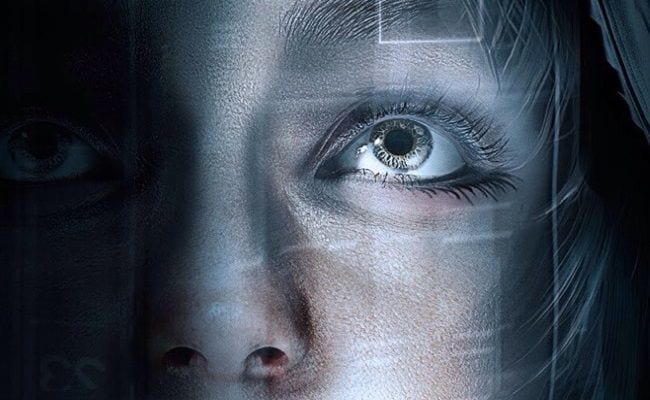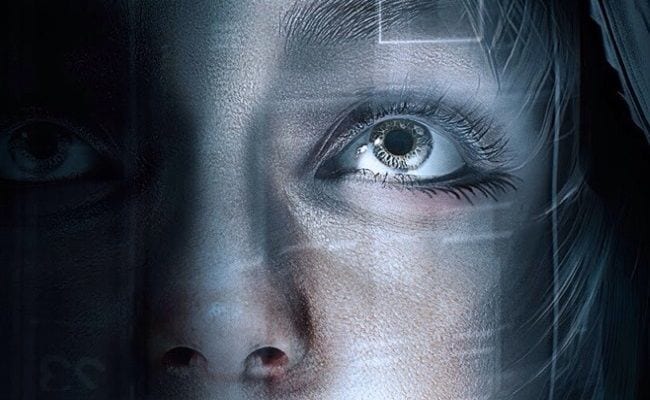
Republique is an episodic stealth game. Originally released on iOS, it has made its way to Steam as well.
Republique is a game set in a surveillance state, the titular “Republique”, and its stealth mechanics are driven by a simple interface in which the player doesn’t so much control the main character of the game, a young girl named Hope, but instead takes control of cameras and views Hope through them. You can instruct Hope about where she should move and where she should hide by “looking ahead” of her, leap frogging from camera to camera throughout a government facility and making strategic decisions on the basis of the information gleaned from the cameras. It is the system being used against itself.
The play probably works a bit more smoothly on a touch screen, but it plays serviceably using mouse and keyboard. This is a less action-oriented kind of stealth game than, say, Metal Gear Solid, but it is fun in its own right to sneak past adult guards without any recourse to violence, since Hope is just a kid in a world of authorities.
Thus, the subtext of the game is extremely anti-authoritarian. The game has been in development since at least 2012 and episodes have been released for the past two years, so there is a lot of clear real life referents that it draws upon to contrast with its own anarchic perspective, the Occupy Wall Street movement, the Anonymous hacker collective, Edward Snowden, government drones, and the like.
Alongside anti-corporatist, anti-statist, and anti-surrveillance, attitudes the game also connects the idea of government over stepping its reach through collectibles found throughout the game. This most often takes the form of banned books, descriptions of the “immoral” content of which are described by the dictator of the Republique in voiceover. So, in addition to being concerned with freedom of information, it more specifically ties that tradition to freedom of expression, more specifically artistic expression. After all, while some of the books that you find are political in nature, George Orwell’s 1984 and Animal Farm or Ayn Rand’s The Fountainhead, others are books deemed immoral or subversive by the culture at large, like James Joyce’s Ulysses, Vladimir Nabokov’s Lolita, or J.D. Salinger’s Catcher in the Rye.
The game clearly wants to connect this championing of artistic freedom in the literary world to the world of video games as well, as alongside these subversive books, there is another line of collectibles that can be procured that are video games published in recent years, indie video games. You can collect diskettes of games like Gone Home, VVVVVV, and Bastion.
The game’s nod to these often more intellectually challenging art-house-style games seems an effort on Camoflaj’s part to give shout outs to the efforts of fellow indie devs that have created games that are innovative and generally outside the mainstream, seemingly appropriate for a game so focused on the revolutionary in conflict with the status quo. However, the correlation to the banned books seems to end there, as I don’t recognize any actual banned or highly controversial games among the bunch. Some of these games are sometimes maligned as “not games”, but no one has called for bans of them that I am aware of. They just don’t like them. Games that have actually been banned (in countries outside of the United States) or recalled (in the United States) or that have caused outcries concerning their immoral or dangerous nature by various groups seeking to assert their moral authority aren’t represented here.
Of course, most of the games that have been banned in some countries aren’t usually considered indies, like the Grand Theft Auto series, the Wolfenstein series, Mortal Kombat, Bully, Manhunt, the Postal series, or South Park: The Stick of Truth. Games deemed dangerous by the political right and the political left or that publishers have chosen not to publish in the West because of a sense that Western culture will not accept them (such as the recent hooharah surrounding the decision not to release Dead or Alive Xtreme 3 in America and Europe) are left out of the mix. I suppose that is with the exception of the appearance of a box for Hotline Miami in one scene (though, this is not a collectible proper) , a series banned for its inclusion of scenes of sexual violence in Australia.
Of course, like the “pornographic” label attached to works like Ulysses and Lolita, perhaps many of the aforementioned titles don’t need the shout out, since it is their controversial nature in and of itself that tends to have helped promote sales. Ulysses is not a book that most people would have purchased given its relative incomprehensibility to the average reader, well, that is except for its much publicized bannings as “pornography”. Suddenly, the populace was interested in this “arty” book. Of more recent note, I remember clearly in the 1980s when The Last Temptation of Christ was released and protested by the religious Right how very much it helped ticket sales on what was a small art house film. The system, once again, being used against itself.
In a nutshell, I’m enjoying the gameplay of Republique, but it’s also simply reminding me of all of the moral panics that I have lived through. In my youth, it was Dungeons & Dragons, Playboy, and heavy metal music that were immoral and dangerous, then it was Harry Potter and Grand Theft Auto, now it’s Grand Theft Auto once again alongside games about strippers, prostitutes, and women in bikinis. Republique is a reminder that someone always wants to scrub art and expression of its potential immorality and inherent dangerousness, the names change, but the attitudes about determining what information should be free do not. Some types of information are always freer than others.


![Call for Papers: All Things Reconsidered [MUSIC] May-August 2024](https://www.popmatters.com/wp-content/uploads/2024/04/all-things-reconsidered-call-music-may-2024-720x380.jpg)



